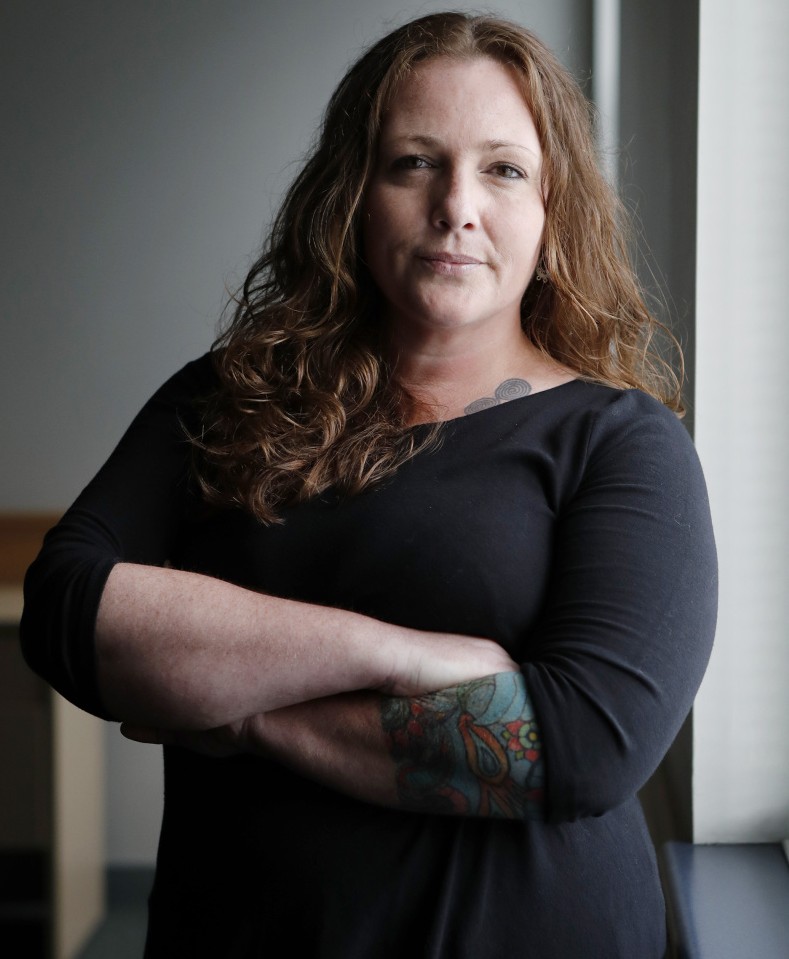To contend with the burgeoning heroin crisis, Westbrook hired a part-time coordinator this week to keep the city on track to lowering the number of overdoses and help more addicts find treatment.
Shelby Briggs, 39, of Westbrook said she will work in the coming months to help the city’s departments, nonprofit groups, health officials and police stay connected and coordinated as they fight on the local level what has become a national epidemic of opioid abuse that last year took the lives of 272 Mainers.
Briggs’ primary responsibility will be to manage the Community Approach to Stopping Heroin, an effort led by Westbrook Police Chief Janine Roberts after the city experienced eight nonfatal heroin overdoses in July 2015.
Briggs will be paid $20.89 per hour and work 25 hours each week.
Among the prosecutors, law enforcement officials, health providers and treatment specialists at the first meeting of the initiative a year ago was Briggs, who was working in Portland’s public health department as an overdose and substance abuse prevention specialist at the time. Three committees were formed to help carry out the community initiative.
Since then, keeping the different stakeholders on the same page has proved to be a challenge, Roberts said.
“We don’t have that glue that holds the committees together and follows up on action steps,” the police chief said. “Certainly her wealth of experience in the recovery and treatment field (will help) the city develop local resources for our community members who are suffering from use disorders.”
While larger cities such as Portland have public health departments with their own budgets and resources, Westbrook, with about 17,400 people, has no such department, leaving a gap of expertise and services that Briggs said she hopes the Community Approach to Stopping Heroin initiative will fill.
Briggs also brings personal experience to the job. She has been in recovery for 22 years after getting clean for the last time at age 17. Since then, she said, the approach to drugs and drug-addiction treatment has changed drastically. Inpatient programs have been replaced with intensive outpatient recovery programs.
The stigma of addiction is slowly easing, and so is the hard-line attitude that produced it.
“I don’t know anyone who hasn’t been affected by this whole gruesome thing, even (police) officers,” Briggs said. “I think it’s definitely a movement toward a more harm-reduction approach.”
Westbrook police, under Roberts’ guidance, have already begun to shift policies to reflect more recent thinking about how officers should interact with drug users. All police officers in Westbrook now carry and are trained to administer Narcan, a life-saving antidote to opioid overdoses. Since they began carrying the drug in February, they have already administered it four times, Roberts said.
In 2015, Westbrook emergency medical personnel administered Narcan to 45 people – roughly 35 percent of the total 128 reported overdoses of any type of drug during the year, according to the city’ fire department.
This year, the city is on track to administer more doses of Narcan, with 27 administrations of the antidote recorded to date since Jan. 1.
Westbrook also abides by a partial amnesty policy, in which people who report overdoses or are found to be in possession of drugs at the scene of an overdose are issued written summonses instead of facing immediate arrest. Briggs said she hopes the policy will encourage more people to call authorities when an overdose occurs instead of remaining silent for fear of prosecution.
In the coming months, Briggs said she plans to lay the groundwork for a citywide addiction response program that will employ volunteers to respond around the clock to overdoses.
The volunteers will receive training to provide emotional support to families and people with substance abuse disorders, outside of the context of law enforcement or treatment.
“We can’t treat someone who’s dead, so we approached the overdoses as a first step,” Briggs said. “What we hope to be able to say we’ve done is reduce the number of fatal overdoses and make the community aware that recovery is possible and treatment is available.”
Copy the Story Link
Send questions/comments to the editors.




Success. Please wait for the page to reload. If the page does not reload within 5 seconds, please refresh the page.
Enter your email and password to access comments.
Hi, to comment on stories you must . This profile is in addition to your subscription and website login.
Already have a commenting profile? .
Invalid username/password.
Please check your email to confirm and complete your registration.
Only subscribers are eligible to post comments. Please subscribe or login first for digital access. Here’s why.
Use the form below to reset your password. When you've submitted your account email, we will send an email with a reset code.